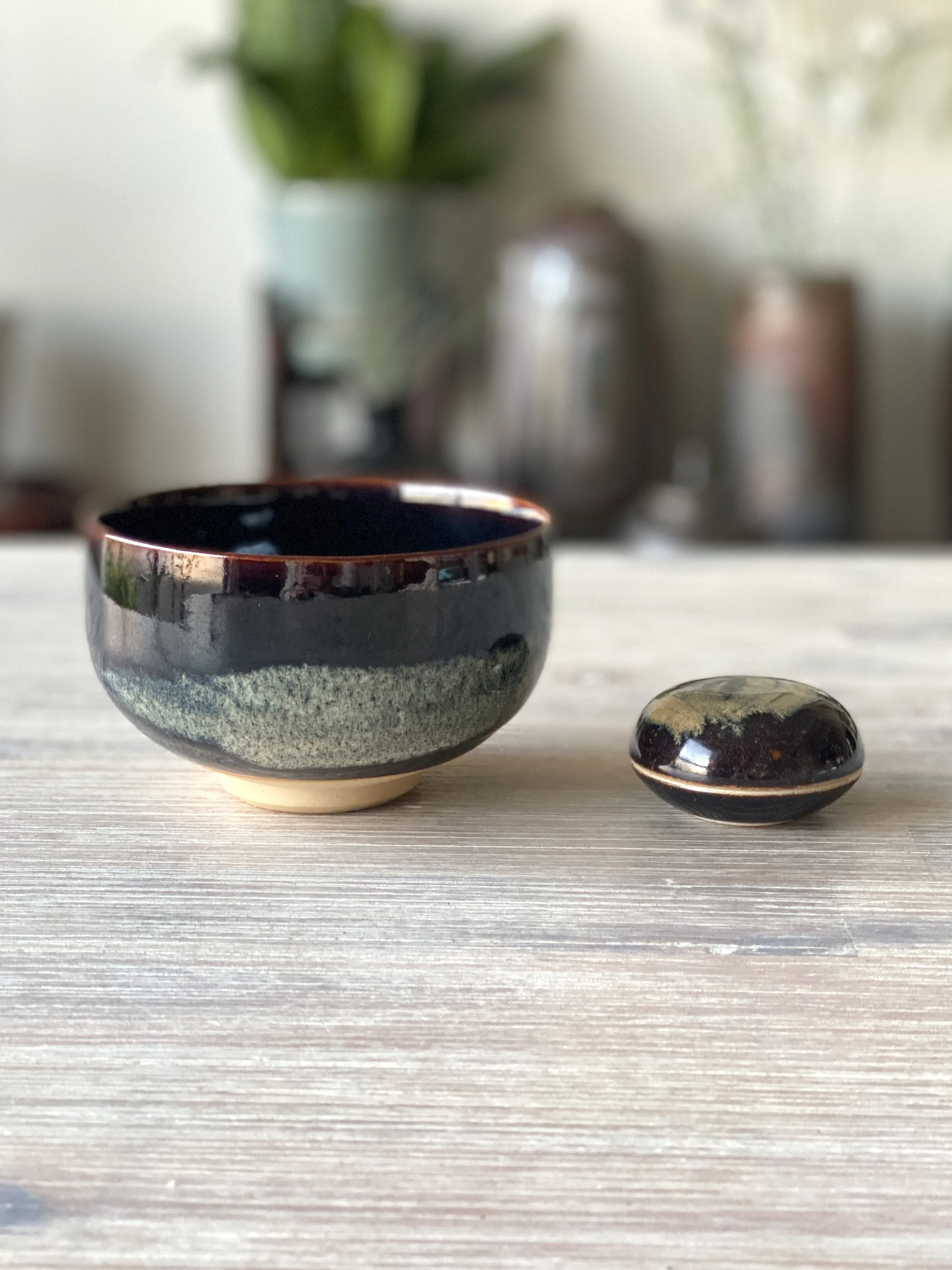 Image 1 of 16
Image 1 of 16

 Image 2 of 16
Image 2 of 16

 Image 3 of 16
Image 3 of 16

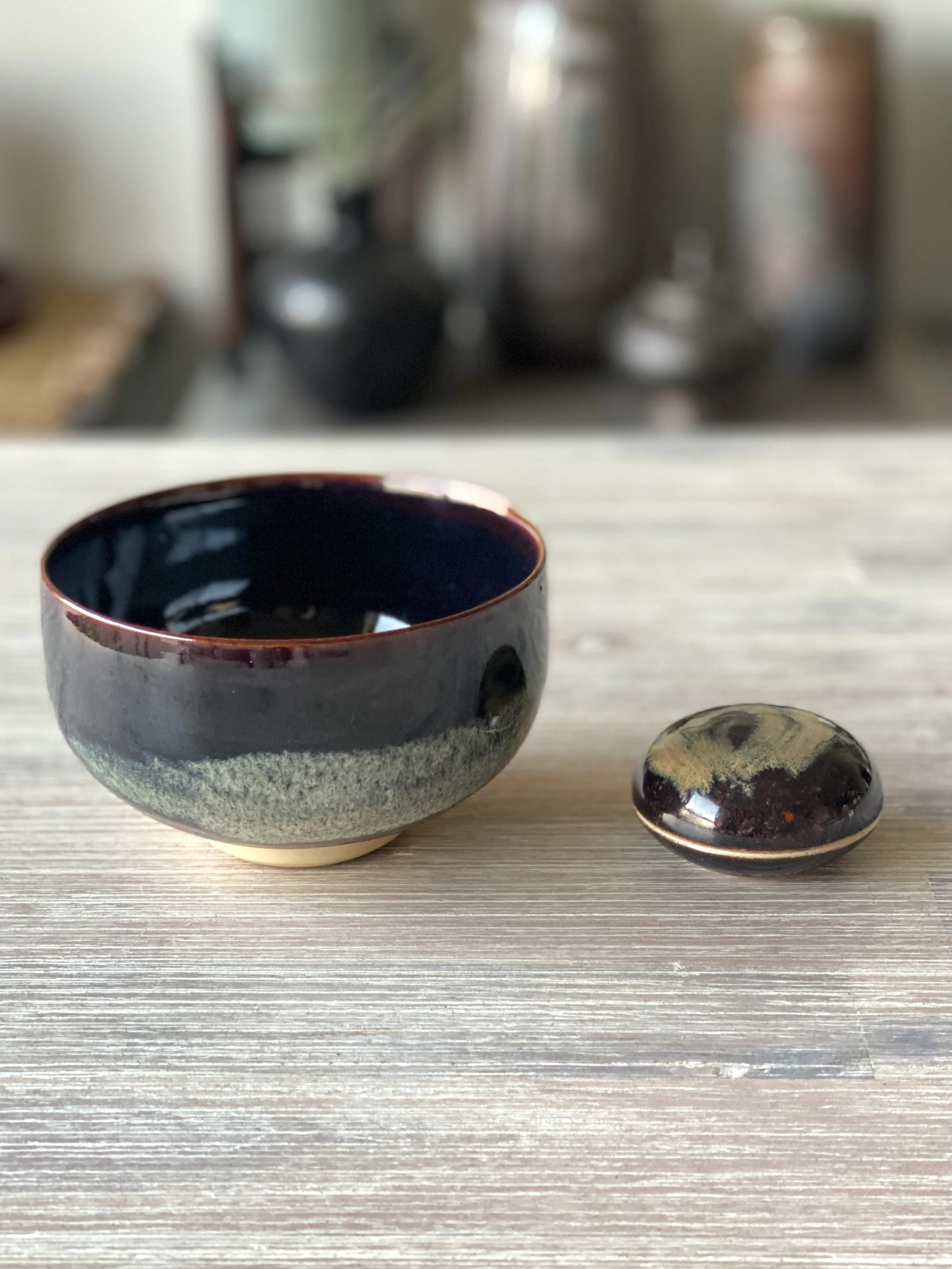 Image 4 of 16
Image 4 of 16

 Image 5 of 16
Image 5 of 16

 Image 6 of 16
Image 6 of 16

 Image 7 of 16
Image 7 of 16

 Image 8 of 16
Image 8 of 16

 Image 9 of 16
Image 9 of 16

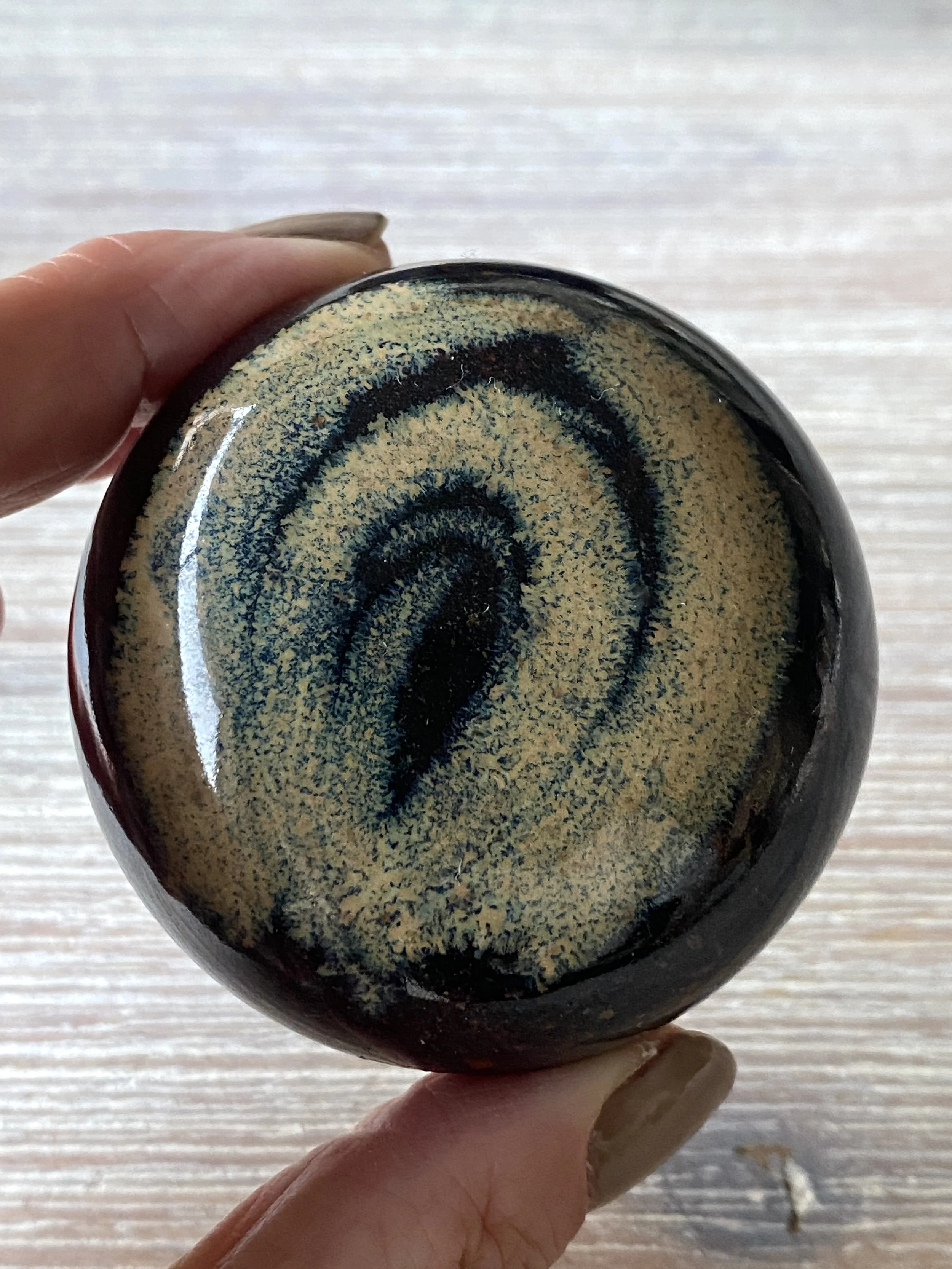 Image 10 of 16
Image 10 of 16

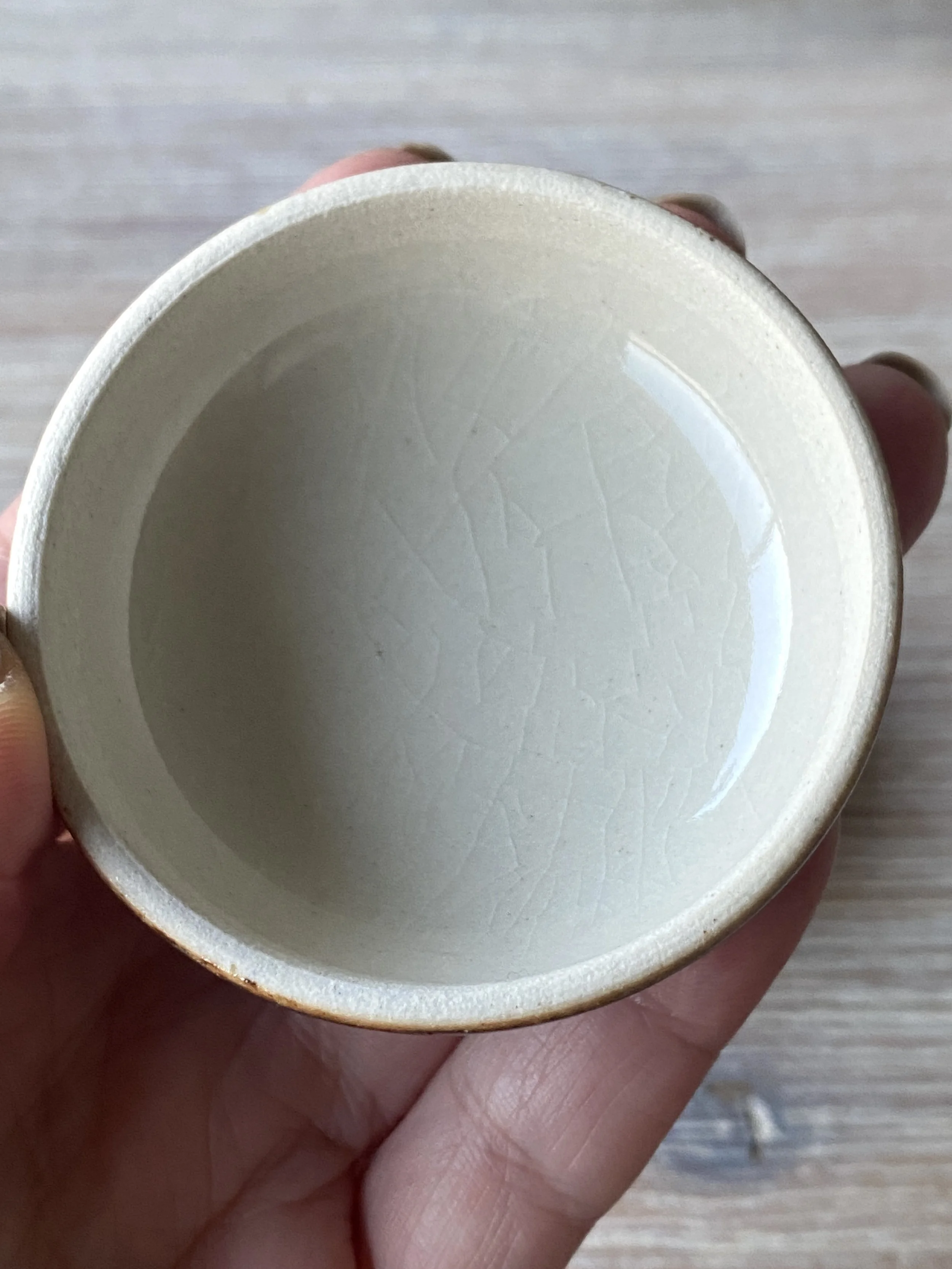 Image 11 of 16
Image 11 of 16

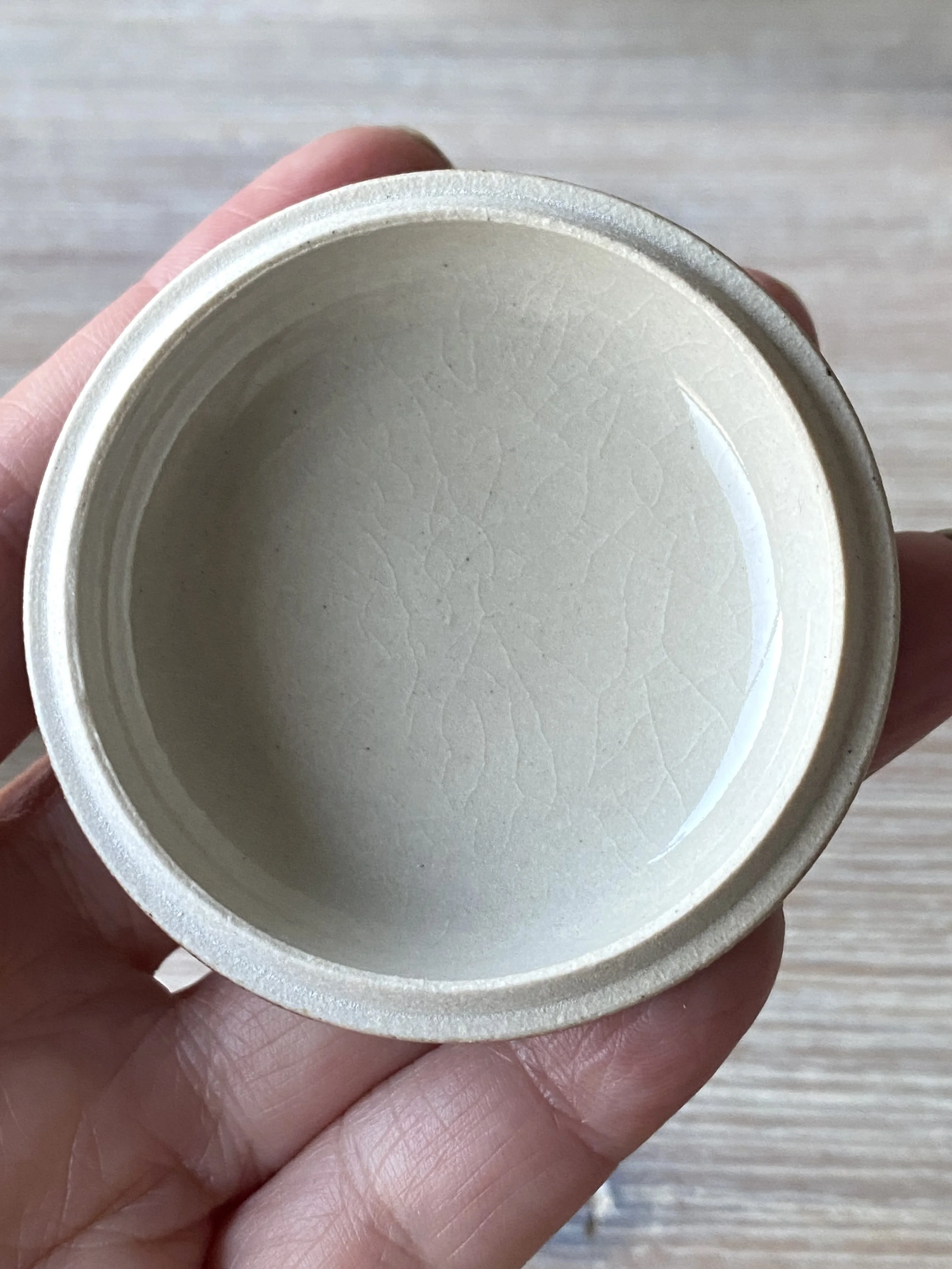 Image 12 of 16
Image 12 of 16

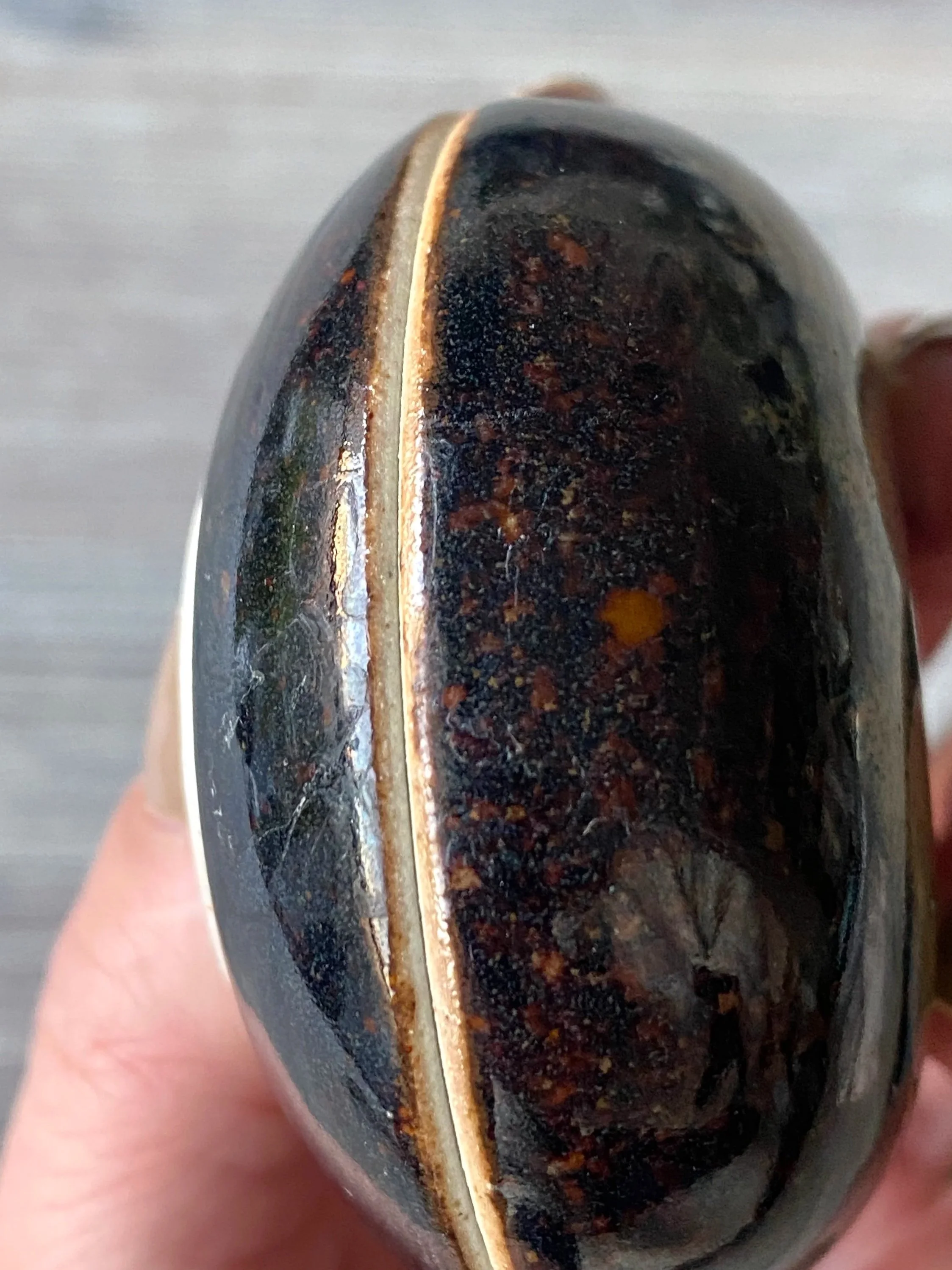 Image 13 of 16
Image 13 of 16

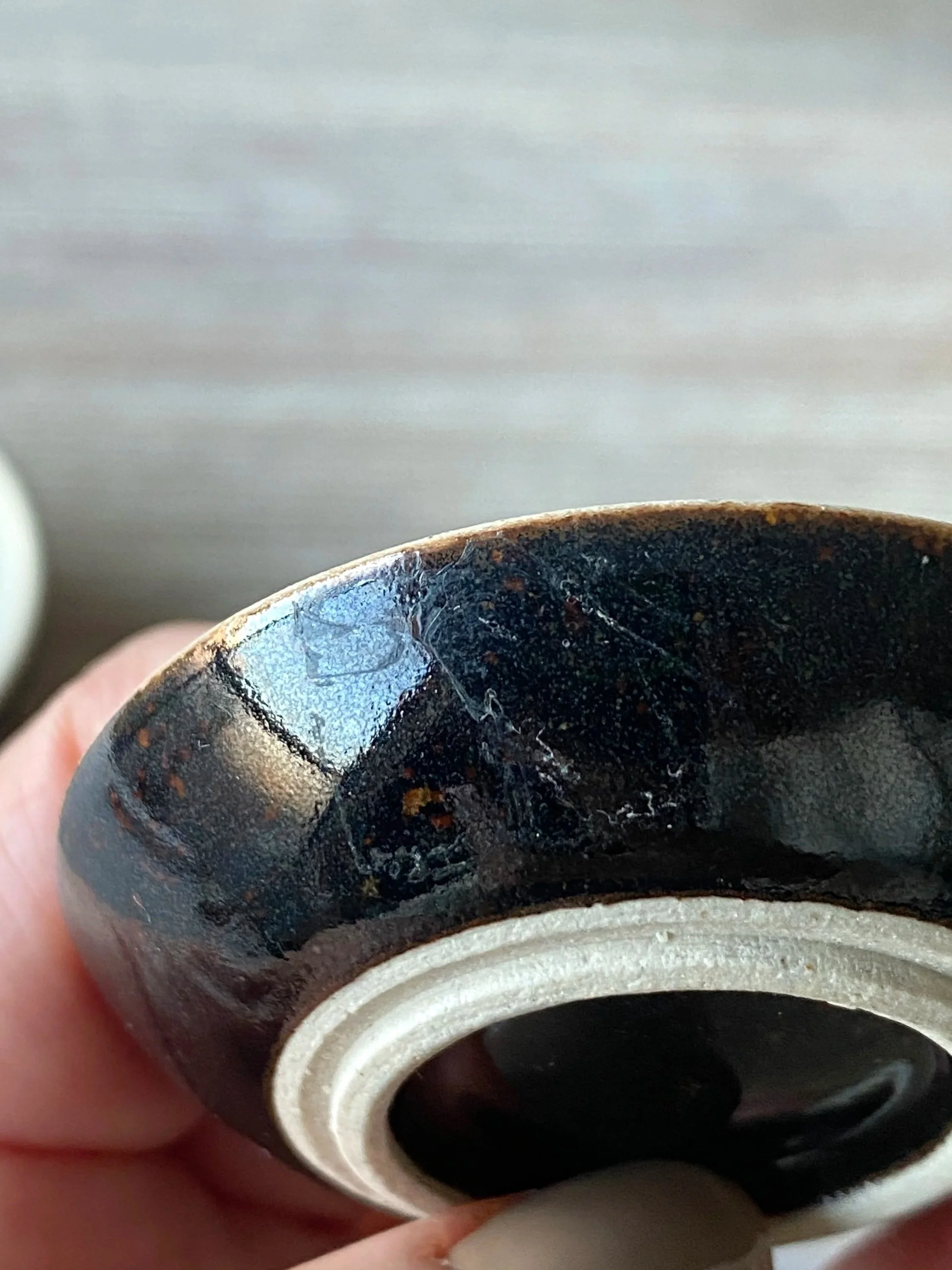 Image 14 of 16
Image 14 of 16

 Image 15 of 16
Image 15 of 16

 Image 16 of 16
Image 16 of 16

















Kyoto Ware Matcha Bowl (with Kogo)
Chawan (Matcha bowl) with Enso Design and Kogo (incense case)
Green tea was introduced to Japan in the 12th century, brought back from China by Buddhist monks
Matcha bowls were originally imported from China, but over time began to be handcrafted in Japan
By the 16th century, as the principles of the tea ceremony evolved, so too did the aesthetic of the bowls with simpler designs becoming more appreciated
This bowl is from Kosha Kiln in Kyoto and marked “Kosha” on the base
It features an enso design, applied in a single brushstroke
Enso, meaning “circular form”, is a symbol of Zen Buddhism
The continuous flow of the circle represents the free-flowing mind, free from attachment
The kogo is a small tea ceremony utensil, typically made of ceramic, lacquer, metal, or wood, used to hold incense fragments or blended aromatics to gently fragrance the tea room
They are not just functional and are also considered miniature works of art
Both the chawan and kogo are Kyoto Ware, often also referred to as Kiyomizu Ware
Although not originally a set, they have been listed together as the glazes are similar and their designs complement each other
SIZE (Approx.)
BOWL
DIAMETER 12.0CM (4.7") X HEIGHT 7.5CM (3.0")
INCENSE CASE
DIAMETER 5.9CM (2.3") X HEIGHT 3.3CM (1.3")
WEIGHT (without packaging)
337 Grams (Total for both items)
CONDITION - GOOD CONDITION
A small fleck in the bowl’s glaze from production time. It also has a couple of scratches.
The incense case has some marks that appear to be tape residue from storage; these marks cannot be removed. There is some crazing on the inside glaze of the incense case, which can be appreciated as part of its wabi-sabi charm.
This set has been priced lower than usual due to these conditions. Overall, good condition.
Vintage, antique and pre-loved items may show some signs of aging or wear. Please inspect the photos carefully before making your purchase.
Please note colours may vary slightly depending on monitor settings.
SHIPPING
Free Delivery - please refer to Shipping & Returns for further information.
The Buyer is responsible for any import duties, taxes (VAT), or fees that may apply.
Bundle purchases may be shipped in separate parcels due to size, weight, or fragility.
Fragile items require extra wrapping for transit, which increases their weight, shipping fees, and overall pricing.
⚠️ US Customers: Japan Post has suspended shipping to the US from end of August 2025. The Tokyotique will resume shipping to the US once this service reopens.
Please note that since August 29, 2025, additional import fees apply to all commercial parcels entering the US.
Tariffs are not included in the item price and must be paid by the customer upon delivery.
Please confirm details with your local customs office.
Chawan (Matcha bowl) with Enso Design and Kogo (incense case)
Green tea was introduced to Japan in the 12th century, brought back from China by Buddhist monks
Matcha bowls were originally imported from China, but over time began to be handcrafted in Japan
By the 16th century, as the principles of the tea ceremony evolved, so too did the aesthetic of the bowls with simpler designs becoming more appreciated
This bowl is from Kosha Kiln in Kyoto and marked “Kosha” on the base
It features an enso design, applied in a single brushstroke
Enso, meaning “circular form”, is a symbol of Zen Buddhism
The continuous flow of the circle represents the free-flowing mind, free from attachment
The kogo is a small tea ceremony utensil, typically made of ceramic, lacquer, metal, or wood, used to hold incense fragments or blended aromatics to gently fragrance the tea room
They are not just functional and are also considered miniature works of art
Both the chawan and kogo are Kyoto Ware, often also referred to as Kiyomizu Ware
Although not originally a set, they have been listed together as the glazes are similar and their designs complement each other
SIZE (Approx.)
BOWL
DIAMETER 12.0CM (4.7") X HEIGHT 7.5CM (3.0")
INCENSE CASE
DIAMETER 5.9CM (2.3") X HEIGHT 3.3CM (1.3")
WEIGHT (without packaging)
337 Grams (Total for both items)
CONDITION - GOOD CONDITION
A small fleck in the bowl’s glaze from production time. It also has a couple of scratches.
The incense case has some marks that appear to be tape residue from storage; these marks cannot be removed. There is some crazing on the inside glaze of the incense case, which can be appreciated as part of its wabi-sabi charm.
This set has been priced lower than usual due to these conditions. Overall, good condition.
Vintage, antique and pre-loved items may show some signs of aging or wear. Please inspect the photos carefully before making your purchase.
Please note colours may vary slightly depending on monitor settings.
SHIPPING
Free Delivery - please refer to Shipping & Returns for further information.
The Buyer is responsible for any import duties, taxes (VAT), or fees that may apply.
Bundle purchases may be shipped in separate parcels due to size, weight, or fragility.
Fragile items require extra wrapping for transit, which increases their weight, shipping fees, and overall pricing.
⚠️ US Customers: Japan Post has suspended shipping to the US from end of August 2025. The Tokyotique will resume shipping to the US once this service reopens.
Please note that since August 29, 2025, additional import fees apply to all commercial parcels entering the US.
Tariffs are not included in the item price and must be paid by the customer upon delivery.
Please confirm details with your local customs office.
